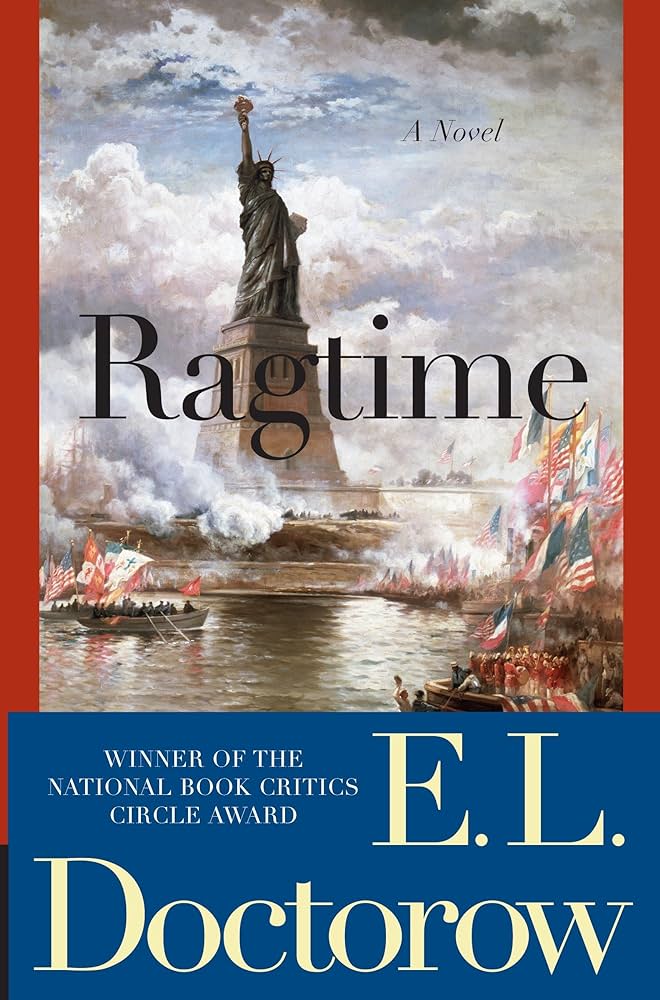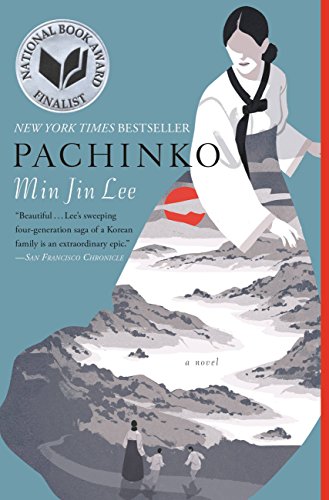When History Becomes Fiction
E.L. Doctorow and the Genre of Historical Fiction
“History is a battlefield. It’s constantly being fought over because the past controls the present.[…] But what most people think of as history is its end product, myth. So to be irreverent to myth, to play with it, let in some light and air, to try to combust it back into history, is to risk being seen as someone who distorts truth.” – E.L. Doctorow
The novel Ragtime weaves truth, fiction and history into its rich narrative of America at the turn of the 20th century. E.L. Doctorow chose to introduce his audience to recognizable historical figures like Henry Ford and Booker T. Washington, alongside fictional characters like Tateh and Coalhouse Walker Jr., in an effort to make the experience of historical individuals more immediate and affecting. Ragtime is a prime example of the power of historical fiction as a storytelling medium.

Ragtime Novel
E.L. Doctorow wrote Ragtime in 1975 but set his story at the turn of the 20th century to connect the turbulent post-Vietnam era with the Gilded Age. Recognizing that the same tensions existed in 1975 as they did in the early 1900s, Ragtime features themes of racism, antisemitism, anti-immigrant, labor exploitation, income inequality, and sexism, which are all as relevant today as they were in 1975 and 1906.
Doctorow never considered himself a historian. He insisted that the past is a myth and owned by the storyteller. The dominant voice of what happened can become the version of the truth that is considered “fact.” For the majority of what Americans consider as “history” that voice was a white male, and that viewpoint was white-centric. However, silence does not equal absence and there are billions of truths that have never been told. Playing with the idea of changing the storyteller, and challenging the acceptance of fact, allowed Doctorow and readers the creative freedom to view the past with a more empathetic lens. Instead of myth, Ragtime then takes on the qualities of fables, using the past to teach a lesson about the present.
While the setting of Ragtime is based in historical fact, Doctorow takes liberties with the lives of historical figures, lending a surreal and intimate quality to the entire story. Doctorow said he was “seducing his readers to open their eyes – to be awake.” By blending truth and fiction, characters from different races, neighborhoods, religions, and social classes all intersect and provide a window into the human experience that can be missing from non-fiction. In reality these characters from their very different worlds would have been highly unlikely to have interacted together. However, imagining the possibility through historical fiction allowed Doctorow to connect readers with history in a way that evokes empathy while also invoking the present. He said, “the historian will tell you what happened. The novelist will tell you what it felt like.”
In this way writers like Doctorow fill in the gaps that “history” leaves out, bringing readers into the private thoughts and experiences of historical characters. For instance, we know that Booker T. Washington would have never interacted with the fictional Coalhouse, or that Emma Goldman would never have inspired Mother’s Younger Brother, but the presence of the actual historical figures lends a feeling of reality. Both Booker T. Washington and Emma Goldman did inspire thousands of people – we just will never know those experiences. But just because those encounters were never recorded does not mean they never occurred. As fictional characters, Coalhouse, Mother, and Tateh stand as representatives for millions of actual people whose stories will never be told. However, by creating these characters, and having them intertwine with recognizable historical figures, Doctorow gives his readers a glimpse into the lives of real people and requires his reader to rethink everything they may have previously accepted as history.
“The past is very much alive, but that it’s not easily accessed,” writes Jay Parini in a 2015 tribute article to E.L. Doctorow for CNN. “We tell and retell stories, and these stories illuminate our daily lives. What “really” happened – in family stories, in public tales – often eludes our grasp. …[Doctorow] showed us again and again that our past is our present, and that those not willing to grapple with ‘what happened’ will be condemned to repeat its worst errors.”
Doctorow is not the only novelist who has freely invented the past to tell a story – nor is historical fiction limited to books. For instance, the Netflix period drama The Crown imagines the intimacies of the English royal family –filling in the spaces between the bits of evidence. Historian Robert Lacey acknowledged in an article for the BBC how this fiction changed the perspective of the royal family by reminding the audience that underneath the pomp, they are just people.
In addition, author Min Jin Lee reflects on the power of historical fiction in an Atlantic article from 2018. Lee is the author of the National Book Award finalist Pachinko about the experience of a Korean woman living in Japan. “I think empathy is our job. Through storytelling, historical fiction adds insight into the humanity of ordinary people. […] Writers are told to be objective, but objectivity plus empathy gives us a bigger lens to see the totality of a person’s complexity…Authenticity is not just what happened, it’s about emotional truth too.”

Pachinko
The power of historical fiction connects readers to the past while commenting on the present. However, there is a timelessness element that also connects it to the future. History can be cyclical. Advancements in human rights are created, and then there is a backlash and a backsliding. While Doctorow wrote Ragtime nearly fifty years ago, so much is still applicable to life today in 2023. Americans still struggle with racism, sexism, anti-immigration, antisemitism, labor exploitation and income inequality. As philosopher George Satanyaya famously wrote in 1905, a year before Ragtime was set, “those who cannot remember the past are condemned to repeat it.” That is the power of historical fiction – not only to invoke empathy and humanity – but to realize that what we think is a merely a window to the past is actually a mirror of our own reflection.